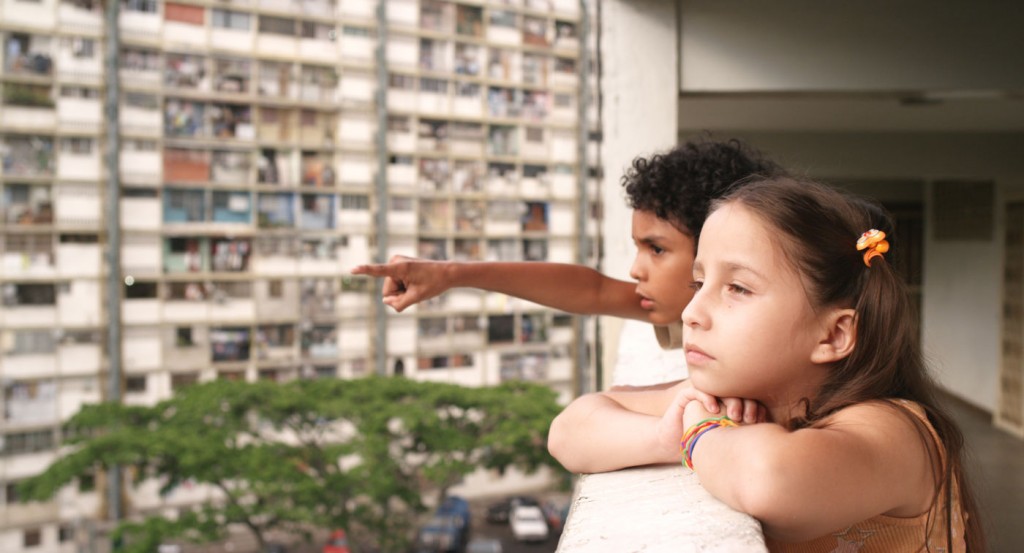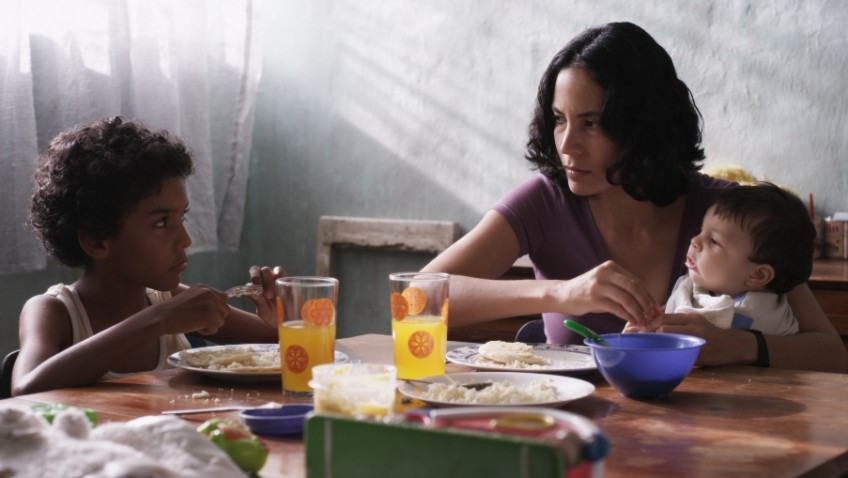Joyce Glasser reviews Bad Hair (Pelo Malo) (January 30, 2015)
News broadcasts of the late President Hugo Chavez’s failing health serve as a metaphorical backdrop for the malaise in the lives of widow and single mother Marta (Samantha Castillo) and her adorable nine-year-old son, Junior (Samuel Lange).
Bad Hair takes the temperature of modern Caracas, a city where the traditional family is disappearing faster than prejudice and poverty. Venezuelan Writer/Director Mariana Rondón’s coming-of-age story is hardly uplifting, but the excellent performances and touching portrayal of broken families failing to connect make it worth checking out.
Marta, whose husband recently died, is going off the rails. She has lost her job as a security guard for poor attendance and is desperate to get it back in order to support her new baby and nine-year-old son Junior. She has run out of neighbours willing to child mind for free, and reluctantly leaves Junior with her mother-in-law.
Back at home, Junior is driving Marta crazy with his demands for money for the school photo, money that Marta does not have. What’s more, he wants to pose as a pop star with his curly hair straightened. Junior has his reasons. He is bullied at school and has noticed that no one around him has curly hair, least of all his mother.
 Junior’s obsession with his hair leads Marta to suspect he is gay, a notion supposedly supported by the fact that his sole friend is a chubby neighbourhood girl who loves to dress up. When a doctor Marta consults recommends a male role model for Junior, Marta takes it the wrong way, bringing a stranger home for some heterosexual love making.
Junior’s obsession with his hair leads Marta to suspect he is gay, a notion supposedly supported by the fact that his sole friend is a chubby neighbourhood girl who loves to dress up. When a doctor Marta consults recommends a male role model for Junior, Marta takes it the wrong way, bringing a stranger home for some heterosexual love making.
Meanwhile, Junior storms out of his grandmother’s flat when he thinks she is dressing him up like a girl, confirming for the audience, at least, that Junior fears being different as much as his mother.
Despite the initial euphoria over Chavez’s election, the economy in Venezuela has raised living standards across the board and unemployment remains a major problem.
Despite some tender moments between mother and son, ignorance and desperation turn Marta into a cold-hearted woman who alienates her son when what Junior needs most is love and self-confidence.
Rondón manages to paint this gloomy picture without sentimentality or melodrama. She wants you to care for the characters and understand them, not pity them.




